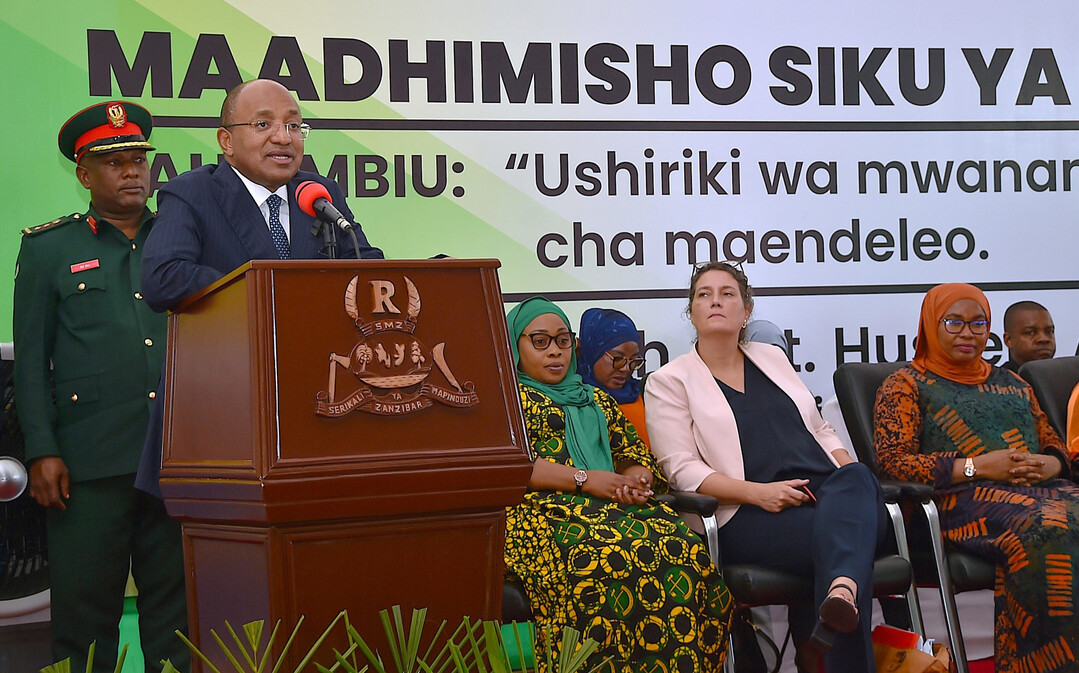
Zanzibar City, Zanzibar – President Hussein Mwinyi of Zanzibar has made a formal appeal to the United Nations Educational, Scientific and Cultural Organization (UNESCO) for increased support in advancing the island's burgeoning blue economy agenda and preserving its invaluable cultural heritage, particularly the UNESCO World Heritage Site, Stone Town.
During a high-level meeting at the State House with a UNESCO delegation led by Director-General Audrey Azoulay, President Mwinyi emphasized the pivotal role of the blue economy in driving Zanzibar's economic growth and enhancing the well-being of its citizens. He highlighted the island's rich marine resources and the government's commitment to their sustainable utilization.
"To fully realize the potential of our blue economy, we require additional technical expertise, cutting-edge technology, and substantial financial assistance," President Mwinyi stated. "This support is crucial for ensuring the sector's sustainability and enabling Zanzibar to harness its abundant marine wealth effectively."
The blue economy, encompassing sectors such as sustainable fisheries, aquaculture, marine tourism, and renewable energy, holds immense promise for Zanzibar. President Mwinyi underscored its potential to generate employment opportunities, stimulate economic diversification, and improve livelihoods across the island.
In addition to the blue economy, President Mwinyi sought UNESCO's enhanced support for the preservation and development of Stone Town, a cultural gem and a cornerstone of Zanzibar's tourism industry. He acknowledged the challenges associated with maintaining the historical integrity of the site, including the restoration of aging buildings and the implementation of effective traffic management systems.
"Stone Town is a major attraction for international visitors and a significant contributor to our economy," President Mwinyi noted. "However, safeguarding its historical integrity requires a concerted effort from all stakeholders, including the private sector and development partners."
He also advocated for a streamlined consultation process with UNESCO regarding the restoration of heritage buildings within Stone Town, ensuring that preservation efforts are both efficient and effective.
Environmental conservation was another key focus of the discussions. President Mwinyi highlighted the importance of the Jozani Forest Reserve, a biodiversity hotspot, and stressed the need for sustainable conservation strategies that balance environmental protection with the needs of local communities and tourists.
In response, UNESCO Director-General Audrey Azoulay reaffirmed the organization's unwavering commitment to supporting Zanzibar's sustainable development. She pledged continued assistance in providing technical expertise, advanced technology, and strategic support to bolster the blue economy.
"UNESCO recognizes the immense potential of Zanzibar's blue economy and the importance of preserving its rich cultural heritage," Ms. Azoulay stated. "We are committed to working closely with the government to ensure the sustainable development of the island."
Ms. Azoulay also commended Zanzibar's progress in the education sector, underscoring UNESCO's dedication to further collaboration in this area.
Following the meeting, Ms. Azoulay toured significant historical sites within Stone Town, including the Palace Museum, the House of Wonders (currently undergoing major repairs), and the former slave market site at Mkunazini.
Ali Said Bakar, Director-General of the Zanzibar Stone Town Conservation and Development Authority (ZSTCDA), expressed gratitude for the UNESCO delegation's visit, emphasizing its role in strengthening the enduring partnership between Zanzibar and the organization.
The renewed commitment from UNESCO signifies a crucial step towards realizing Zanzibar's vision of a sustainable and prosperous future, where the blue economy and cultural heritage coexist in harmony.
[Copyright (c) Global Economic Times. All Rights Reserved.]




























